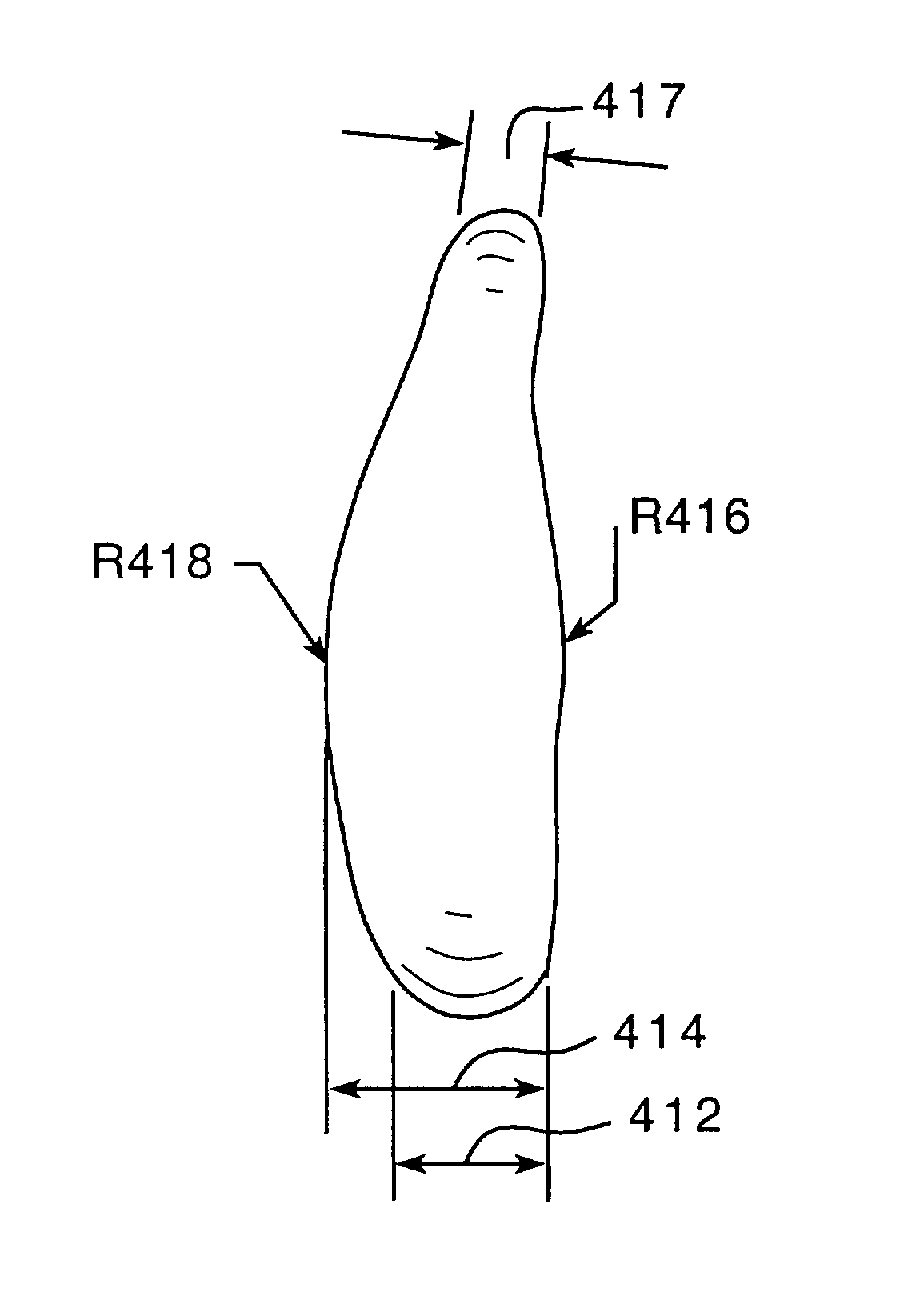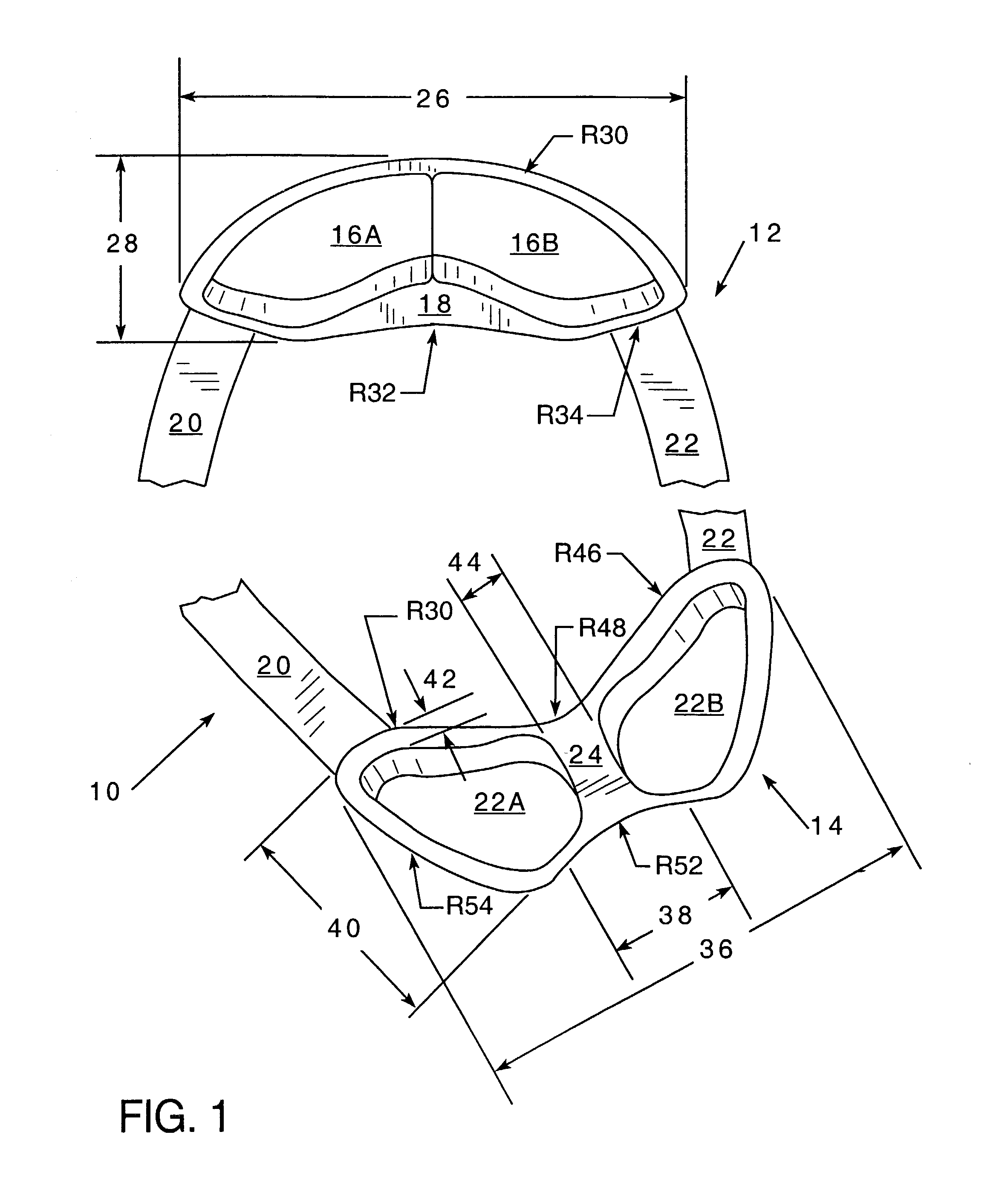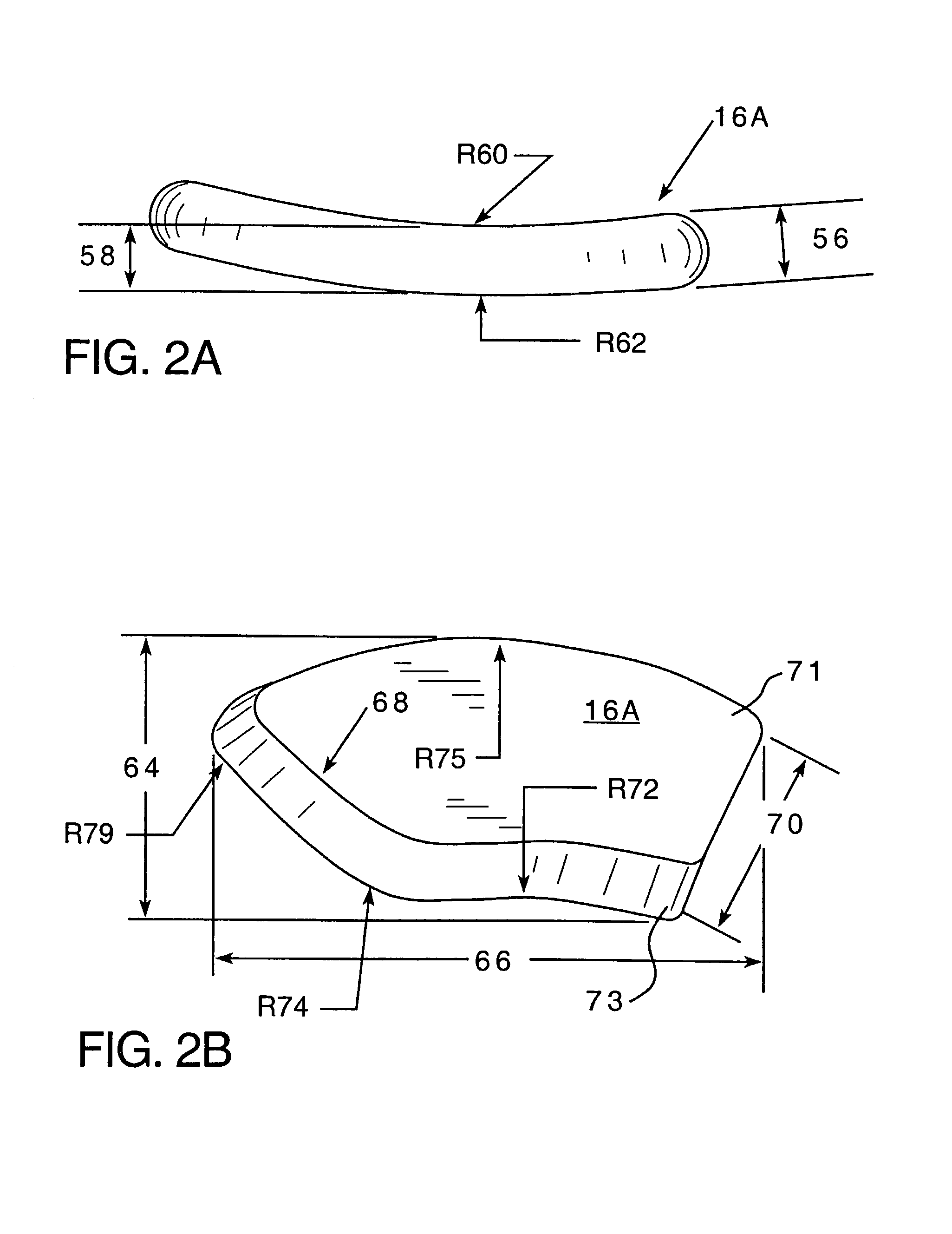Wearable human physiological data sensors and reporting system therefor
- Summary
- Abstract
- Description
- Claims
- Application Information
AI Technical Summary
Benefits of technology
Problems solved by technology
Method used
Image
Examples
embodiment 10
[0073]Referring now to FIG. 1, the collar or neck embodiment of a pod set is illustrated. This set preferably comprises four pods, 16A, 16B, 22A and 22B, mounted within a flexible collar. The flexible collar may be of a unitary construction or comprised of front section 18, rear section 24, and connecting sections 20 and 22. Either or both connecting sections 20 or 22 may be of unitary construction and stretchable to the point that the head may be inserted therebetween or may be connected through a well known fastening means. The collar in embodiment 10 has a front section 12, which is primarily comprised of collar front flexible section 18 having a length 26 of 7.89 inches and a width 28 of 2.82 inches. The front edge of section 12 has a radius R30 of 4.42 and a rear radius R32 of 6.3. Rigid pods 16A and 16B are mounted thereon with a flexible space deposed therebetween. While pod 16A and 16B may abut each other, a space of at least ⅜ inch is preferably disposed therebetween. The f...
embodiment 152
[0080]Referring now to FIG. 7, and with general references to FIG. 6, FIG. 7A shows pod 154A being the analogue of pod 154 for the rightmost section of the upper torso embodiment 152 having an overall height 196 of 5.01 inches and an overall width 198 of 2.66 inches. Pod 154A may generally be described as having three major areas, top and bottom convex sections 164 and a central concave section 166, forming a portion of the chamfer described earlier. The topmost convex section has a centerpoint length of 0.79 inches and the topmost curve R204 is provided with a radius of 0.88 inches. Radius R204 transitions leftwardly to radius 216 of 3.75 inches and rightwardly to concave radius R206 being 5.48 inches. A distance 202 of 1.74 inches is taken from the mid-point of the transitional curve between R206 and R204 to the topmost point of 154A. Radius R206 traverses downwardly and transitions to second concave radius R208 having a dimension of 3.68 inches, finally transitioning into bottomm...
embodiment 560
[0089]Referring now to FIG. 15, a forearm embodiment 560 is shown. Not illustrated but well understood to those skilled in the art, is a flexible cuff which envelops the wrist area having a typical length dimension of 4 inches into which the pod 560 is mounted. The pod for the forearm sits aside of the head of the ulna behind the wrist joint and on top of the tendons. The straightest edge of this roughly circular form follows the line from the tendon extending back from the forefinger. The flexible cuff that surrounds pod 560 encircles the arm and may be curved to avoid interference with the head of the ulna. The cuff could also extend the length of the forearm, curving under the bicipital fascia and wrapping upwardly along the line defined by the brachialis muscle. The small size and low profile of pod 560 are specifically intended to allow complex skeletal twisting and to permit the forearm to interact with the environment to enter various spaces on or around the body. Pod 560 is ...
PUM
 Login to View More
Login to View More Abstract
Description
Claims
Application Information
 Login to View More
Login to View More - R&D
- Intellectual Property
- Life Sciences
- Materials
- Tech Scout
- Unparalleled Data Quality
- Higher Quality Content
- 60% Fewer Hallucinations
Browse by: Latest US Patents, China's latest patents, Technical Efficacy Thesaurus, Application Domain, Technology Topic, Popular Technical Reports.
© 2025 PatSnap. All rights reserved.Legal|Privacy policy|Modern Slavery Act Transparency Statement|Sitemap|About US| Contact US: help@patsnap.com



